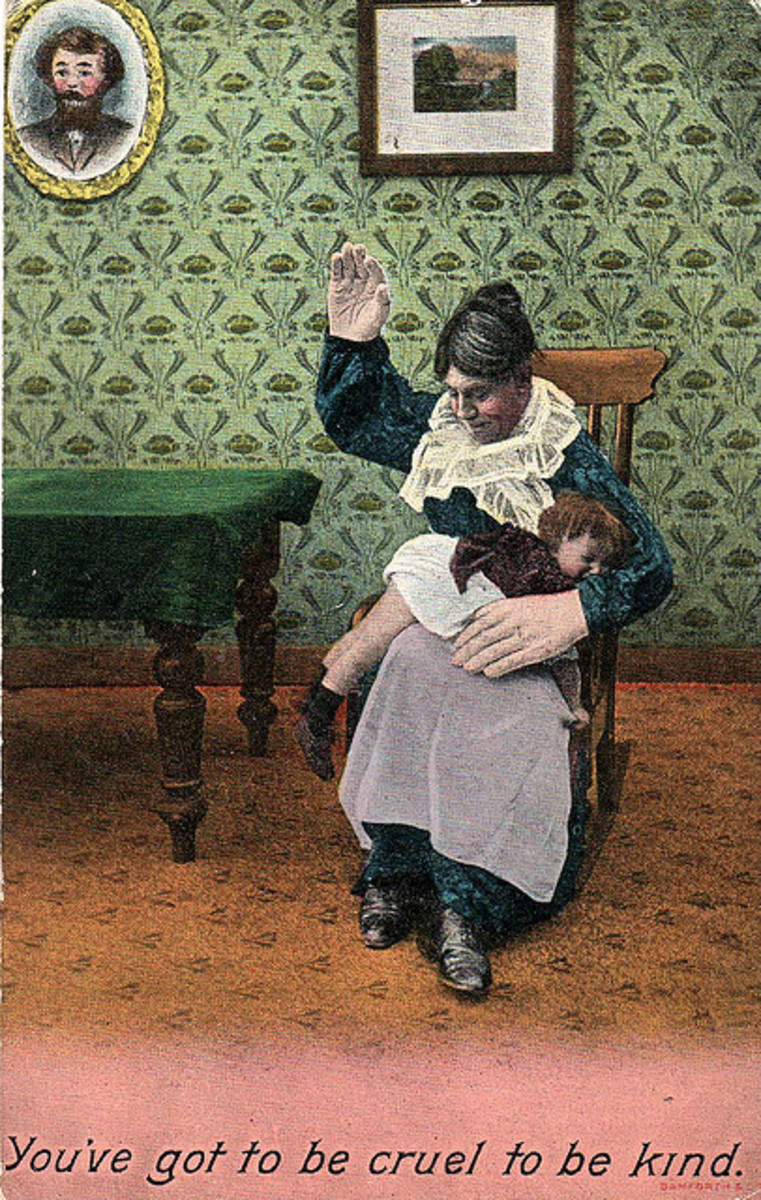How to Unspoil a Child

Humane Ways to Undo Parenting Errors
The most well-meaning parents can spoil a child. It’s never too late to undo the damage, and tough love isn’t so tough at all.
A spoiled child is the result of misguided, indulgent parenting. At some point, even his parents come to admit that their spoiled child is demanding, exhausting and just plain old unhappy. Parents put too much emphasis on their child’s immediate gratification rather than teaching values that will serve him well as he enters society. Developing good character is important if he is to have a chance at personal happiness and fulfillment.

Undoing the Damage
The longer the child has been overindulged, the harder it will be to undo the damage. There is an old Japanese proverb that goes, “Bend the tree while it is young." Bend the grown oak tree and it will break.
Somewhere along his young journey, the spoiled child has learned wrong messages. He believes he is entitled to everything. He knows that throwing a tantrum will bring whatever he wants.
Un-spoiling a child involves teaching him new messages. Keep these messages simple:
“If you yell and scream, you get nothing.” No rewards, no attention. He must connect tantrums with not getting what he wants.
“Use your words.” Using his words nicely will improve his chances of getting what he wants.
“Behave nicely.” Behaving respectfully towards others will bring positive attention. Give him plenty of attention by talking and playing with him when he behaves appropriately. Too many children never get “rewarded” this way so there is little incentive to behave.
“We don’t want to be with you when you’re hurting us.” Behaving poorly towards others result in being left out of the fun. Mistreating others is not allowed. Yelling and screaming hurts ears while saying mean things hurts feelings. Send him away from the family activities until he apologizes and behaves nicely.
“If you don’t take care of the things you have, you won’t get more.” Spoiled children don’t appreciate what they already have because they expect an endless flow of gifts. Stop the gift-giving until they can show they value what they have by taking care of things. When they see that taking care of too many things takes too much time and effort, they will stop wanting more.
“Think about others.” Teach them about the reality of less fortunate children around the world or in their own community. Use books or movies. Engage in charitable activities. Encourage them to donate their unwanted toys. Children who live in abundance don’t realize that they are privileged so they can’t appreciate that fact. They must see that there are many other ways of living in order to feel grateful for what they have.
Repetition Reinforces the New Messages
In the beginning, a spoiled child will resist. Repeating the new messages – without reverting back to old ways – will show him that his new way of living is here to stay. If you give in, he will continue to throw tantrums because he knows that he can wear you down. Never give in to a tantrum-throwing child.

Typical Manipulation Tactics
Spoiled children can be crafty in getting what they want. They know their parents’ weakness is their desire for their child’s happiness. Spoiled children will engage in the following behaviors until their parents break down and give in.
Shock and awe. Spoiled children will resort to self harm, including head banging, holding his breath, pulling out his hair, and clawing at his skin which alarms parents who, out of sheer shock and desperation, give in to make the child stop.
Past advice suggested that parents ignore self harm because the otherwise healthy-minded child will not want to feel pain. The notion was that they would stop when it hurt bad enough. But as some parents find, their determined children will inflict serious damage upon themselves out of frustration and anger.
The best way to deal with this is not to show any shock or alarm. Say nothing. Stay out of his view so he can’t use his tactics to get your attention. Place him in a safe room where he can’t hurt himself or destroy property.
If your child continually resorts to self harm, you need to take him to a pediatrician who may make a referral to a specialist for developmental exams. Some health conditions or disorders may cause a child to be prone to self-injury.
Refusing to eat. Parents need to realize that typical children will not starve themselves and skipping a meal or two will not malnourish them. If a child refuses to eat, shrug your shoulders and let him sit until everyone is finished eating. Your message is that eating is pleasurable. It is not a punishment. You should not force a child to eat. The best food seasoning is hunger. We often don’t allow our children to know what being hungry feels like because we provide an endless stream of food and snacks.
Inflicting harm on others or pets. Retaliation can involve taking out anger and frustration on others or animals. Make it clear that this is unacceptable. Remove him from the presence of others and pets.
Bed-wetting. A spoiled child can resort to bed-wetting to show anger and to get back at his parents. Again, show no emotion. If you get angry, you’ve given him what he wanted. But not all bed-wetting is a sign of rebellion. If your child already had bed-wetting problems before your attempts to un-spoil him, talk to your pediatrician about solutions.
Ignore manipulation tactics and continue to deliver the new messages at appropriate times with consistency. It may take time and effort but if these lessons are not learned at home, your spoiled child will have to learn them in school and society where the “teachers” will not be as patient and kind as you are. Spoiled children struggle with social relationships outside the home and that has lasting effects on their personal and academic development.

Rewards and positive reinforcement are vital
When it comes to developing positive behavior plans at home, most parents focus on the negative reinforcement and neglect the positive. Children respond best to positives. It is vital not to use positive rewards as bribes;however children must see that natural rewards come with positive behavior:
Positive attention: The best and most valued reward a parent can give a child is his or her joyful attention.When a child decides to curtail the tantrum and rejoin the group, make a big deal out of it. Rejoice in his good decision. Play a game, talk, read a book together. Give him a piggyback ride. Make his efforts to behave result in good times. If he receives positive reports from his teacher, applaud his efforts again.
Material rewards: Parents can't resist giving material rewards, but try not to attach a tangible reward with good behavior. Good behavior is expected. The result of good behavior is positive social interaction. A gift should be a gift, not a reward. Otherwise, it can resort to extortion and bribery very quickly with a child holding out for a "better prize."
A last note: iIt is critical, however, to differentiate between a spoiled child and a child with special needs. If your child exhibits difficult behaviors and does not respond to reason, consult your pediatrician for developmental disability assessment. It is cruel to demand behavior compliance from a child who is incapable of understanding expectations. Please read Hubpages.com’s “Is Your Child Spoiled?” and "How to Unspoil a Child."







